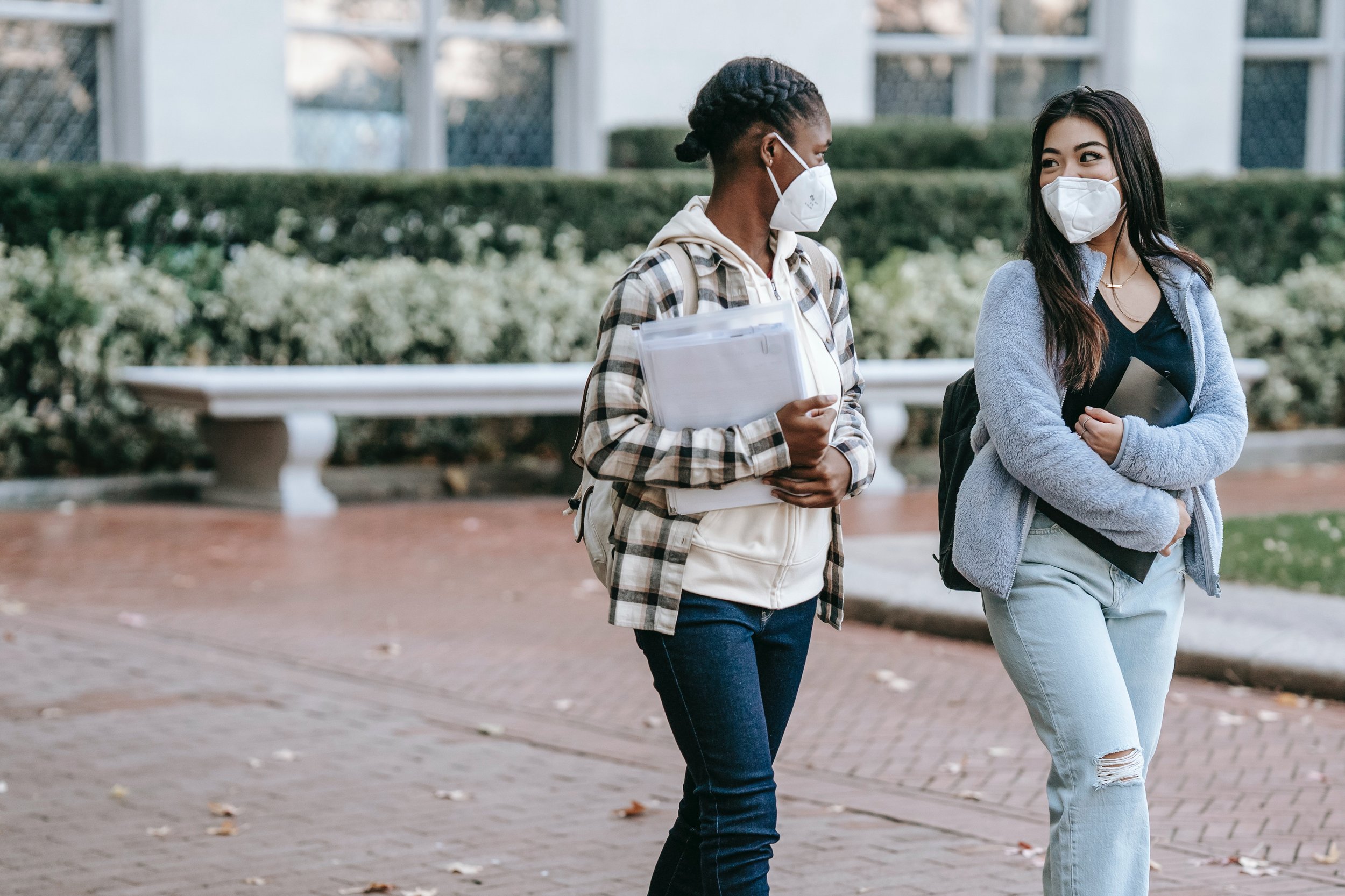
How do we stop Long Covid?
The scientific community is mobilizing to develop better vaccines and new treatments. But if each Covid infection carries new risks of developing debilitating long-term symptoms, then we can only opt out of Long Covid’s risky game of “Russian Roulette” by using all the tools available today: masks, filtration, better ventilation, social distancing, testing, and vaccination.
-
Masks are our first lines of defense against getting infected with Covid. But not all masks are created equally: fit and filtration make a big difference in how well your mask will protect you and others.
When everyone present is wearing well-fitted, high-filtration N95, KN95, KF94, FFP2, P100, or elastomeric masks over both the nose and mouth, the chance of infection is greatly reduced. A well-fitted mask is one that forms a full and complete seal around the wearer’s face.
Visit the World Health Network for resources, tips, and infographics on how masks keep us all safe.
-
We all benefit from breathing clean air in our workplaces, schools, and homes — and not just to avoid infection from airborne viruses. Evidence of the cognitive impact of air pollution was growing long before the Covid pandemic.
But clean air is particularly important to prevent airborne viruses from concentrating and overwhelming the protections afforded even by well-fitted masks.
Improving indoor air quality with ventilation and filtration is accessible and affordable with the technologies we already have today.
Visit the World Health Network for resources, tips, and infographics on how ventilation and filtration are essential to safe indoor spaces for all. For a deeper look at these topics, follow Joey Fox, P. Eng, M.A.Sc on Twitter or at ItsAirborne.com.
-
Masks, ventilation, and filtration are all more effective when you also stay at a distance from others where possible.
Anyone feeling ill should stay home and test until symptoms resolve. But because even those who are asymptomatic breathe out viral particles that stay in the air like smoke, keeping your distance gives the virus more chance to disperse, swept away by the wind outdoors or by ventilation and filtration indoors.
Stepping even a few paces back means fewer viral particles hitting your mask, reducing the chance that enough of them will sneak through to infect you.
The best defense? Limit your in-person encounters wherever possible (especially indoors), work remotely if your job allows, and advocate for workplaces (and public spaces) that are respectful and accommodating to all.
-
If you have symptoms of Covid or a strong suspicion that you have been exposed, it is important to isolate and test until symptoms resolve.
Laboratory PCR tests and at-home “molecular” tests are more sensitive to the virus than widely available antigen tests. But testing more than once is essential because all available Covid tests produce significant false negative results.
False negatives arise because your testing swab doesn't have sufficient virus on it to turn the test positive. This means that a negative test result doesn’t guarantee that you’re not infected and won’t infect coworkers, friends, and family.
Likewise, a lack of Covid symptoms doesn’t mean you can’t infect others. Symptoms may not yet have developed (i.e., you are “presymptomatic”) or you may have an “asymptomatic” case. Either way, testing — along with the other mitigation measures — reduces the risk you may inadvertently put colleagues and loved ones in danger.
Visit the World Health Network for infographics and guidelines discussing how testing is an important pillar in the fight to stop the spread of Covid in our communities.
-
While studies confirm that vaccination alone is insufficient to protect us from all the effects of Long Covid, staying up to date with the available vaccines is critical to reducing the risk of hospitalization and death if you’re infected.
Visit your local health authority’s website, such as the U.S. CDC or U.K. NHS, for more on which vaccines and boosters you qualify for given your age and risk factors.
